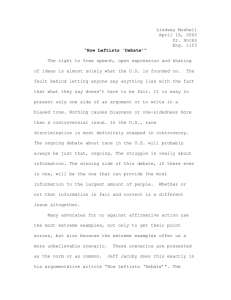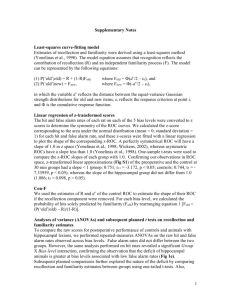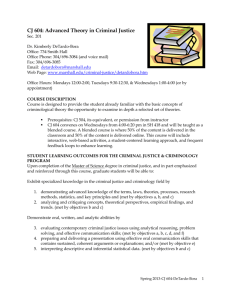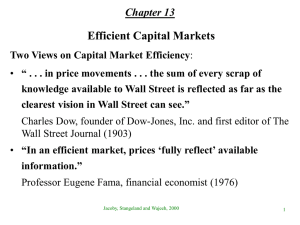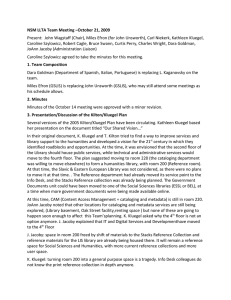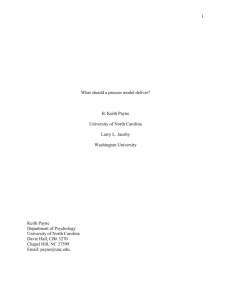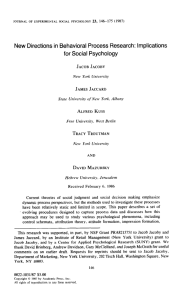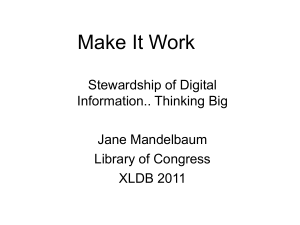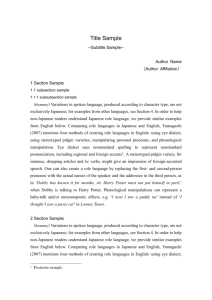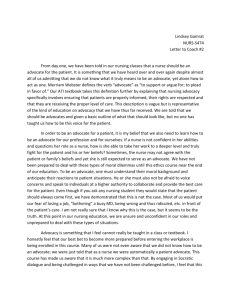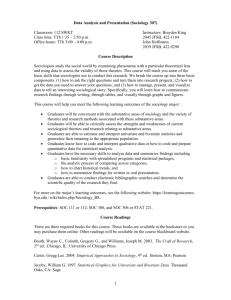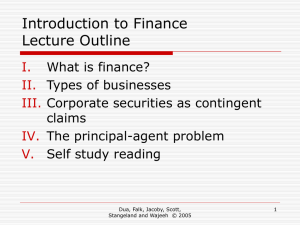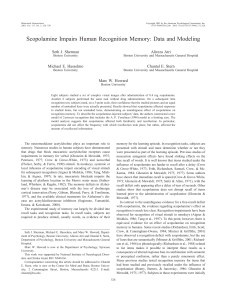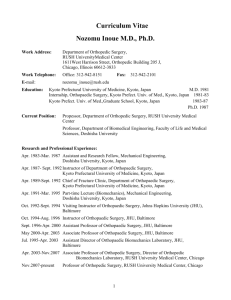Memory Seminar Focus Questions for Week 5 Inoue & Bellezza
advertisement
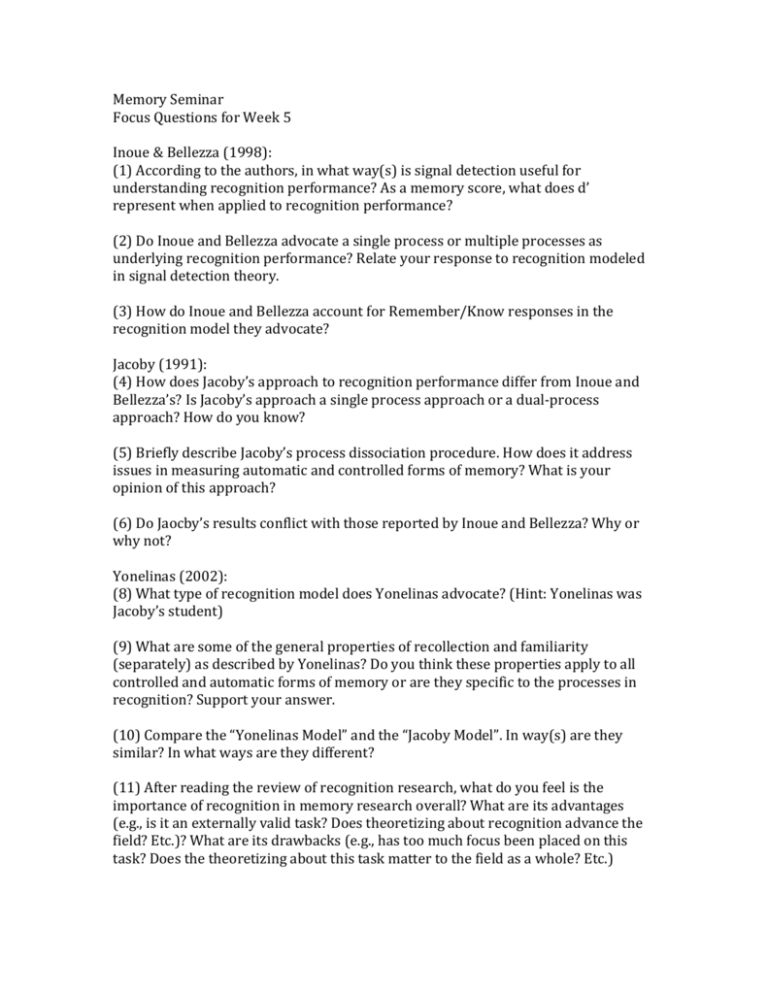
Memory Seminar Focus Questions for Week 5 Inoue & Bellezza (1998): (1) According to the authors, in what way(s) is signal detection useful for understanding recognition performance? As a memory score, what does d’ represent when applied to recognition performance? (2) Do Inoue and Bellezza advocate a single process or multiple processes as underlying recognition performance? Relate your response to recognition modeled in signal detection theory. (3) How do Inoue and Bellezza account for Remember/Know responses in the recognition model they advocate? Jacoby (1991): (4) How does Jacoby’s approach to recognition performance differ from Inoue and Bellezza’s? Is Jacoby’s approach a single process approach or a dual-process approach? How do you know? (5) Briefly describe Jacoby’s process dissociation procedure. How does it address issues in measuring automatic and controlled forms of memory? What is your opinion of this approach? (6) Do Jaocby’s results conflict with those reported by Inoue and Bellezza? Why or why not? Yonelinas (2002): (8) What type of recognition model does Yonelinas advocate? (Hint: Yonelinas was Jacoby’s student) (9) What are some of the general properties of recollection and familiarity (separately) as described by Yonelinas? Do you think these properties apply to all controlled and automatic forms of memory or are they specific to the processes in recognition? Support your answer. (10) Compare the “Yonelinas Model” and the “Jacoby Model”. In way(s) are they similar? In what ways are they different? (11) After reading the review of recognition research, what do you feel is the importance of recognition in memory research overall? What are its advantages (e.g., is it an externally valid task? Does theoretizing about recognition advance the field? Etc.)? What are its drawbacks (e.g., has too much focus been placed on this task? Does the theoretizing about this task matter to the field as a whole? Etc.) (12) How does the Yonelinas model fit with results from neuroscience studies of recollection and familiarity? Is it primarily consistent or do you see some inconsistencies between the two? Overview Questions: (13) These articles presented views of recognition consistent with both single- and dual-process models of recognition. Which view seems more applicable to recognition tasks? Support your answer. (14) What issues should memory researchers focus on with regard to recognition in future studies? How would these issues be useful in learning about memory overall?
